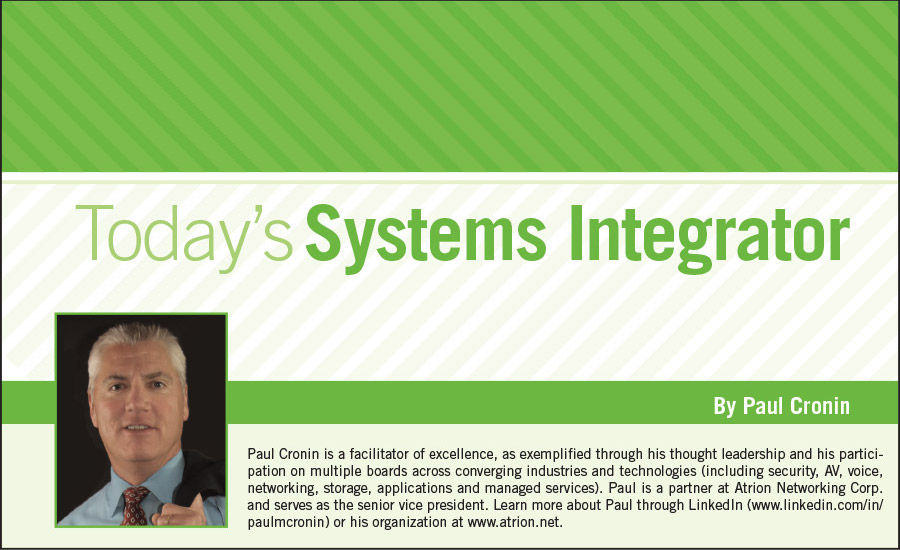Asking the Right Questions for Your Business

Quick Question — What Would Happen If…?
Recently I was having drinks with executives from four integrators who had revenues from $10-$40 million. We were swapping stories from the street about sales, clients and client retention. That is when the conversation evolved and it led me to ask the question, “What would happen to your relationship with your client if your primary contact were to leave suddenly?”
One executive responded that the client relationship would continue and be fine. One responded that they weren’t sure and the third and fourth executives said they would be in a very bad position. I wasn’t surprised that 50 percent of the responses indicated they would be in a bad position because I had witnessed a major client relationship transition fifteen years ago with my own company and I saw the client disappear overnight.
So I asked the two why they would be in a bad position. Both responded that a lot of their client relationships were dependent on a single contact that they had a long-term relationship with. They were the one who over the years had consistently engaged with them over their needs, handled all the communication and even pushed the purchase orders along to get the project started. They had very little contact with anyone else in the client business other than a technician with no decision making power. In other words, there was no reason for the sales rep to muddy the waters and evolve new relationships within the client, so they didn’t. They also said that a lot of the go-to client contacts didn’t want to introduce them to anyone else in the business because they feared it would result in more questions and weaken their decision making powers.
The industry is changing and now more than ever technology decisions seem to be getting made by lines of business outside the traditional decision makers. The cloud has made it easy for business stakeholders to acquire business applications that can help them achieve their goals without IT being involved until after a decision is made. For example, Human Resources could purchase a hosted access control system to manage employee privileges.
I think another shift in the industry is the aging of the baby boomers and the upcoming retirement wave that is coming. All four of the executives agreed that many of their best client contacts would be facing retirement in the next five years.
Just then the waiter showed up and we decided to order another round. That is when I asked my next question: “What would happen to your client relationship if your sales representative left your company suddenly?” The answers from the four executives were very similar to the question I asked related to the client contact leaving.
I think it is time for integrators to change how they engage with the client and invest more deeply in understanding their business imperatives. The following are some of the things I think can help integrators strengthen their client relationships:
-
Build a client engagement team that is deeper than the sales rep and engineer.
-
Dedicate an executive sponsor to each of your mid-level and top client accounts.
-
Require the executive sponsor to visit the client twice a year and engage with their leadership.
-
Do formal account planning sessions twice a year to create a plan for deeper penetration.
-
Create a client advisory board in order to drive consistent executive engagement with clients.
-
Incentivize sales to engage with the client’s business leaders and report on their initiatives.
-
Require that all client contacts visit your business and sponsor an executive lunch.
Another suggestion that worked for me was transitioning our sales representative off of their accounts every two years. We would assign another sales representative in to the account and they would not have any reservations about going outside the client contact. This approach typically accounted for increased sales of 25 percent in the first two years due to fresh thinking and an energized sales approach.
Looking for a reprint of this article?
From high-res PDFs to custom plaques, order your copy today!








